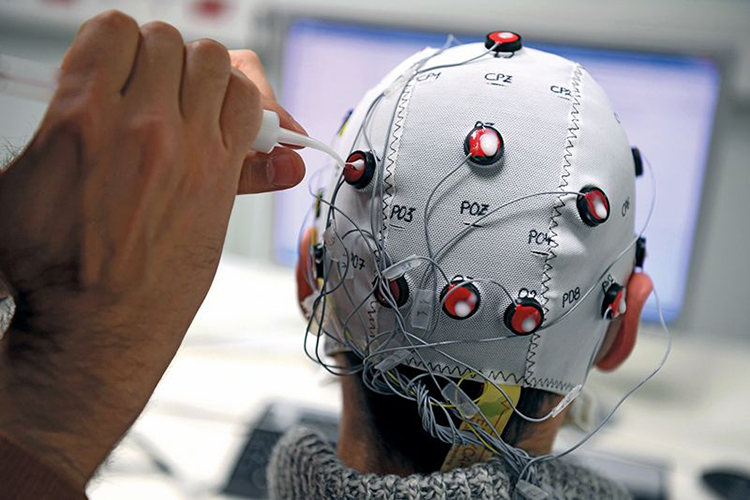Center for Neurotechnology (CNT) member, Frederic Gilbert, was interviewed and quoted in a recent Nature article, “The ethics of brain-computer interfaces.” The piece focuses on ethical issues surrounding development of neurotechnology and loosely tracks Gilbert’s experience with “Patient 6,” a research study participant who had a predictive brain-computer interface (BCI) implanted to help manage her epileptic seizures. The participant found herself bonding with the BCI, coming to view it as a part of herself in a relationship Gilbert described as “radical symbiosis.”
“You grow gradually into it and get used to it, so it then becomes a part of every day,” she told Gilbert. “It became me,” she said.
Gilbert and other ethicists studying neuroethics at the CNT track real-life case studies such as this, studying ethical issues such as an individual’s sense of identity and agency, as well as related privacy and security issues that are arising from emerging neural engineering technologies. This work helps scientists, engineers and neurosurgeons at the CNT integrate ethical concerns and considerations into neurotechology research, development and clinical applications.
Learn more about Gilbert’s research and Patient 6’s experience as a study participant in the full article appearing in Nature.
Image:

